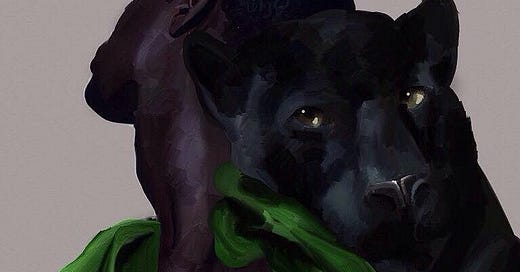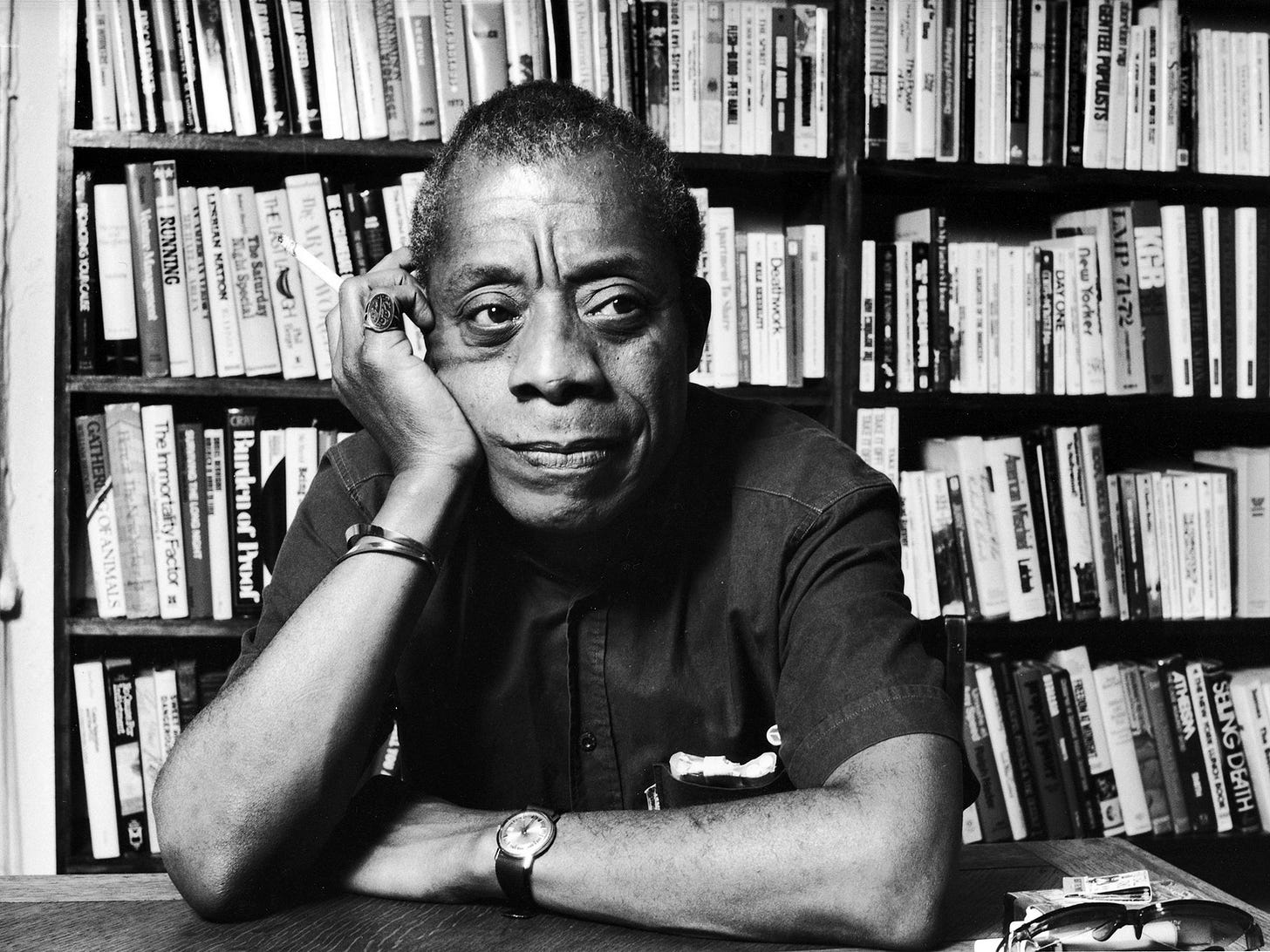Your free edition of The Sunday Collection. Subscribe to receive these emails directly every Sunday.
Download our iOS app to listen to audiobook summaries of some of our favorite books here.
This is part 3 of a 3 part series on the Black experience in America, inspired by the writing of James Baldwin.
The Obsession Paradox
The superfluous idea that white people want to be black in this modern world is a joke. They would like it if they were on the Lakers, or Drake, or Will Smith. They know they would love to be black for a moment, but it would be a curse to them for a lifetime.
To give up whiteness is to give up obliviousness to race. It removes the barrier from something that holds no weight to them. Instead, it is the burden you are constantly reminded of.
Being black is not a curse. However, living in a white society that holds up pride statues of confederacy and white supremacy supporters is the curse.
The curse is the paradoxical hypocrisy. America is a land of freedom based on the who, what, where, and why. And the vast majority of those things end with because you were black.
But the black race doesn’t suffer. It persists.
From the first death in the independence of this country, to being promoted as the saviors of the country every four years. We get touted as the moral red line in the sand, and then our actual problems are overlooked. They innovate to escape us, then enjoy the fruits of our labor on TikTok and IG. They punt the football, and we return it for a touchdown, then somehow they get the points.
The Liberal Hypocrisy of America
Imagine for a moment if Jewish children were called superpredators by the children of Nazi party members. But we’re forced to be thankful for our overlords these days as if Kamala Harris and Barack Obama were going to break out of the compliance of the lobbyists’ grip.
At least politically, we’ve given ourselves to the idea that politicians can rectify all wrongs. It’s the only place I see that has bounds on black people.
We’ve successfully humanized ourselves in every way besides politically. We are now POC. Black people have lost all the leverage. We’re a block of a block of a block. At the same time, our people suffer in plain sight.
The truth is we don’t need their validation. White supremacy exists solely to stir black fear. Those with evil intent use the tools of their disposal.
So not all white people are racist, but all white people can recoil back to inexplicitly focusing on tribal solutions for their people first and next to nothing for the underclass.
Have ya’ll noticed the marijuana business has been booming lately?
The Dangers of Radicalization
The truth is, the path towards radicalization in society has widened. And the biggest threat to the livelihood of Black people has always been white people. The more radical they become, left and right, the more in danger and obfuscated Black people in America are.
On the right, we become enigmas, unhelpable, degenerate people.
On the left, we become slaves, helpless, and in need of correction.
As COVID has ravaged the black community, white Americans look at their data and know but don’t say that black people get vaccines at the lowest rate.
And black people don’t say that we have some of the highest obesity rates.
This doesn’t make the news in a way that is reflective of how they express themselves towards blacks.
Radicalization ignores the genuine problems and solutions, as that doesn’t line the pockets of pharmaceutical companies and Tyson Chicken.
We know it because segregation exists in America; go to any major city and its surrounding suburbs, and you know it’s true.
Let me reiterate.
Radical whites burned Tulsa down.
Radical whites segregated the federal government.
Radical whites started the civil war.
Radical whites put black people on the government payroll and destroyed the black family.
Left and right, hand in hand.
And all for what?
Their egos.
Our Reckoning
Ignorance, allied with power, is the most ferocious enemy justice can have. - James Baldwin
So our ancestors wane and pray for us as we live and attempt to thrive in the country.
Malcolm and Martin both pray for us as Panthers in the Bardo. The idea that assassinated men would be resting in peace is a fool’s message. Panthers in the Bardo rest in power. And we have an obligation to help bring them peace.
Our dependance on the white race and its interdependence on our willingness to let them save us are the crust of a disturbed national morality.
To salvage it, we need a genuine internal desire to build a community’s infrastructure that embraces ideas of small-town Americanism for black people across the country.
We need 100 Tulsa’s by 2040. Seriously.
We need 1000 Software-driven Tulsa’s, on the blockchain, impossible to destroy or marginalize.
We can’t live off popcorn success; that’s just a flash in the pan.
We can’t tear it all down because those before us have done so much to give us this gift of an experience that is so much freer than anything they could have imagined.
If a world of Black Power and excellence exists, in this life, we have to build sustainable, safe, prosperous black towns.
We have to be prepared, protected, God-fearing, family-oriented, and business-friendly.
We are not free unless we’re all free.
It is the knowledge of it that makes the wrinkle seem to persist into infinity.
The problem did not arise in 1649. It did on July 1st, 1776, in the Continental Congress. The souls sacrificed in the more leisurely and determined continuation of white supremacy haunt every landmark and every bridge. Every skyscraper and every statue. Everything in DC and the Hollywood sign itself. The cleaning of America has been among us, and it’s accelerating to now.
The Panthers one day will be at rest, but for now, as it seems to have always been, restlessly contemplating their place in the American Bardo.
Thanks for reading. It’s been a labor reading Baldwin and trying to formulate these ideas.
Here are some book recommendations of Baldwin’s work that you may enjoy:
For A large collection of his work - James Baldwin: Collected Essays
So if it resonated, annoyed you, confused you, angered you, or whatever. Let me know. Leave a comment or reply to this email.
Check us out on Instagram too.
But most importantly, keep reading.
We’ll be back to our regular book newsletters next week.
Peace.





